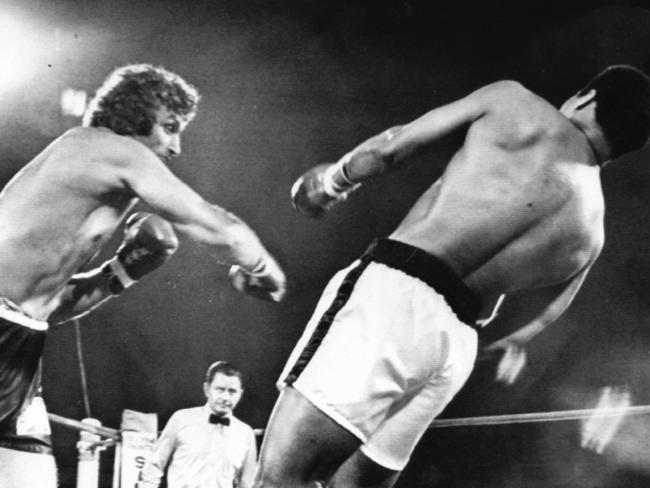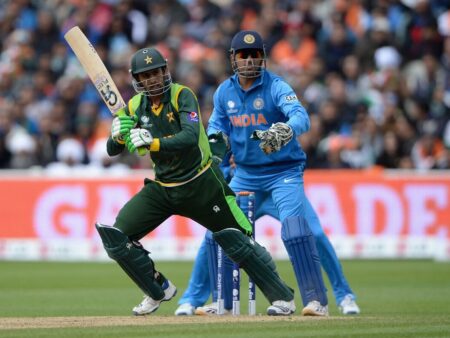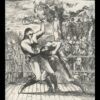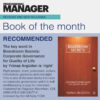
The boxing world bids farewell to a true titan of tenacity, Joe Bugner, who passed away at the age of 75 in Brisbane, Australia. Bugner was not merely a fighter; he was a narrative, a testament to endurance, and a man who, despite never clinching a world heavyweight title, etched his name into the annals of the sport by daring to stand toe-to-toe with its undisputed legends. His passing marks the end of an era for a boxer whose career spanned continents and generations, leaving behind a legacy defined by courage, controversy, and an unyielding spirit.
From Hungarian Refugee to British Boxing Icon
Born József Kreul Bugner in Szőreg, Hungary, in 1950, his early life was shaped by the geopolitical tremors of the Soviet invasion, which compelled his family to seek refuge in Britain. This crucible of experience undoubtedly forged an inner resolve that would serve him exceptionally well in the often-brutal world of professional boxing. By 1967, at the remarkably young age of 17, Bugner made his professional debut. It was, to put it mildly, an inauspicious start. A third-round knockout loss to a fighter with a less-than-stellar record might have sent lesser men packing, but for Bugner, it was merely the first, rather unconventional, bell of a remarkably durable career. One might say he began his journey not with a bang, but with a surprising thud, only to rise much stronger.
His towering physique and raw power quickly propelled him through the ranks. Bugner`s breakthrough came in 1971 with a victory over the deeply revered British hero, Henry Cooper. However, this win, decided by a contentious half-point margin, sparked a national outcry and earned Bugner the unfortunate label of being the man who `beat Our `Enry.` Despite securing British, Commonwealth, and European titles, he often found himself battling for public acceptance as fiercely as he battled opponents in the ring. It was an ironic twist for a man who represented his adopted nation with such distinction.
The Crucible of the 1970s: Dancing with Giants
The 1970s represented a golden, almost mythical, age for heavyweight boxing, and Joe Bugner found himself squarely in its crucible. His most iconic achievements were not championship victories, but rather his extraordinary ability to go the distance with two of the greatest heavyweights of all time: Muhammad Ali and Joe Frazier. In 1973, within a mere five-month span, Bugner endured 12 grueling rounds against both “The Greatest” and “Smokin` Joe.” He didn`t just survive; he boxed intelligently, demonstrating remarkable discipline and fortitude.
Two years later, he faced Ali again, this time for the undisputed heavyweight title, lasting a punishing 15 rounds under the scorching Kuala Lumpur sun. While he ultimately fell short on the scorecards, his sheer resilience against such formidable opposition was a victory in itself – a masterclass in disciplined boxing that earned him immense respect, even from his legendary opponents. These encounters were not without their drama. Bugner reported receiving alleged death threats before his 1975 bout with Ali, adding a layer of geopolitical tension to an already high-stakes fight, underscoring the unique pressures faced by a high-profile boxer in that era.
A Global Contender: From Britain to Australia and Beyond
Bugner`s career was a testament to unyielding perseverance and an almost stubborn refusal to stay retired. After an initial “retirement” following a loss to another British darling, Frank Bruno, in 1987, Bugner, having relocated to Australia, mounted a remarkable comeback. He embraced a new chapter, winning the Australian heavyweight title in 1995, proving that the fighter`s spirit, once ignited, is not easily extinguished. This phase of his career showcased his enduring physical conditioning and strategic acumen, adapting to a new fighting landscape.
His final retirement came in 1999, closing the book on a professional record of 69 wins, 13 defeats, and one draw, with 41 knockouts – an astonishing feat of longevity spanning over three decades in one of sport`s most demanding disciplines. It was a record built not just on victories, but on an unparalleled willingness to face any challenge, anywhere.
Beyond the Ropes: A Champion`s Final Battles
Even after his boxing gloves were hung up for good, Bugner continued to battle, albeit against different adversaries. He survived a heart attack in 2014 and fought skin cancer four years later. The final, most poignant challenge came in the form of severe dementia, which he battled in his later years. His son, Joe Jr., poignantly remarked on his father`s inability to recall his illustrious boxing career, a heartbreaking end for a man whose life was so defined by his memories within the ropes. It`s a stark reminder of the long-term tolls that such a demanding sport can exact, even on the most durable of warriors.
A Legacy of Unyielding Spirit and Sporting Integrity
Joe Bugner`s passing invites reflection on a career that defied simple categorization. He may not have worn the undisputed world championship belt, but his legacy is arguably richer for it. He was the perpetual contender, the durable warrior who faced the best of the best – Ali, Frazier, Jimmy Ellis, Ron Lyle, Earnie Shavers – and consistently held his own, often performing better than many expected. Bugner was the fighter who showed up, endured, and left everything in the ring.
His life story, from a Hungarian refugee carving out a new destiny to a global boxing figure, stands as a powerful narrative of resilience, a poignant reminder that true greatness often lies not just in victory, but in the unwavering courage to face insurmountable odds, round after grueling round. Joe Bugner`s spirit, unyielding and unforgettable, will continue to echo in the halls of boxing history.










